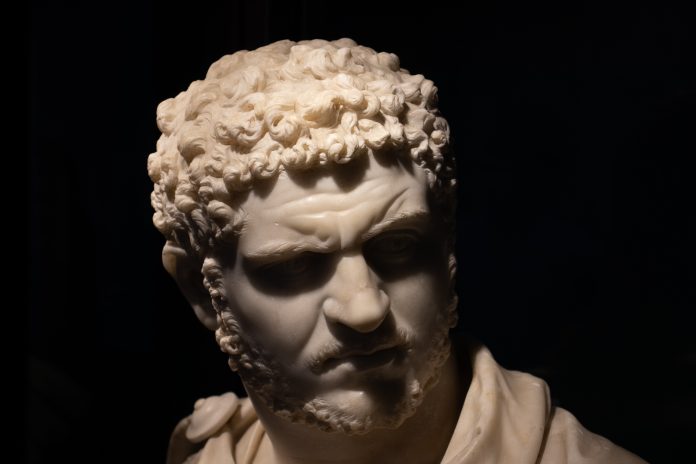This year has been an insane year of learning. I’ve had incredible highs, even getting engaged, then the lows of having to break that engagement. I’ve started a new business, put everything I then had into to it, and took that risk. I’ve forced myself to read books I wouldn’t normally read, try things and go to places I haven’t tried or been to before.
It’s been a year of news, of uncharted territory for me at least.
Through it all, progression has been the goal.
To consistently and persistently progress in every area of my life. There are setbacks daily, but on to the next has been the attitude. When you’re trying to get better, your behavior or the decision you should make becomes clear. (read: 15 steps to being a better man)
You’re not happy with where you’ve been or how you’ve acted thus far because you know you can do better, and better is clear. You workout when you say you’re going to, read when you say you’re going to, work and only work without the distractions that can claim a day.
Of all the lessons I’ve learned or re-learned this year, these are the ones that’ll help you have a better 2020.
Lessons That Will Help You Dominate 2020
The promises you make to yourself have to be kept.
The promises you make to yourself, that is, the thing you set out to do or tell yourself that you will do, even if it’s but a thought in a moment that soon passes, are incredibly important. They need to be kept.
The more you lie to yourself, by telling yourself you’ll do things that you don’t do – a trip, a business to start, book to read, workout to go on etc… – the more you weaken your resolve and your belief in yourself.
Be very careful, not necessarily about the promise made, make audacious promises, but keep them. Always, always, always, always keep the promises you make to yourself.
If you say you’ll do something – even internally – do it. Always.
Do what you say you’re going to do. If you do that for a long enough time, you’re really setting yourself apart from every other human on the planet. You’re becoming a better human. The results will be incredible. (read: are you living a lie?)
Small daily decisions are incredibly important.
In the same light, even little decisions you make every day are incredibly important.
The decision to check your phone when you’re working, that’s a habit-forming decision that will be repeated. We could list hundreds of small, seemingly insignificant decisions that we all make every single day where we know the correct decision but do the wrong on anyway.
They’re all important.
Be making the right decisions daily we literally become better humans. We become elite, high-performing individuals and it has nothing to do with talent or a gift or a hand-out, or even ‘hard work’, it’s just doing the correct behavior every time we’re faced with an opposite option.
Give each decision the importance it deserves, and choose correctly.
Logic doesn’t have to make sense.
Another way to put it is, what works is better than what makes sense. Economic models sometimes make sense but are disastrous when put into practice, especially when the economic model makes sense to an intellectual who has no real-world experience with the market.
There are customs we’ve had that don’t necessarily ‘make sense’, but help our species or tribe survive. Take Jews removing pork from their diet as pigs eat the same food as humans, having something on your limited land that eats what you eat isn’t ideal. Or the same with Muslims, as pork meat tended to spoil on the battlefield, leading to a sick army, something that couldn’t be afforded at the time.
There are superstitions in small tribes that don’t necessarily make sense, but help keep the hunter, the child, the mother safe. I believe in a God, but let’s say there isn’t one, yet praying helps relax an individual, it helps them see clearly, make better decisions, and live a better life, in that light, praying works.
What works is more important than what makes sense, and what makes doesn’t always work in the real world.
Focus on what works, what works for you, and question what makes sense in theory, if it doesn’t work, then it’s not logical.
Past mistakes don’t necessarily apply to current decisions.
We have to be careful not to apply a past lesson to a present situation even if they appear the same.
Different relationships require different actions and decisions and they have to be dealt differently. To have one useless lady that you’ve gone out with doesn’t mean that every other one will be the same, or that they should be treated the same, or that situations within that relationship are the same.
Be careful when making decisions that you don’t allow past biases to influence your current decision.
Most limitations are self-imposed.
We tell ourselves stories about who we are and what we can do. They’re wrong. They’re degraded versions of our true potential, but also of the amount we can endure.
We think we can’t handle this or can’t achieve that, do deep down we don’t give it the effort or discipline we deserve. We sabotage our efforts to fit the stories we’re telling ourselves.
Identify the stories you tell yourself, be aware of them, or just deal with the present and do the best you can with what you have, where you are, as Theodore Roosevelt said.
It’s all b.s., these limitations that we impose on ourselves. We have to understand that this negative self-talk is bullshit, and everyone has it. It doesn’t matter if it’s some loser who drinks himself to sleep everyday or some winner who’s killing it in nearly every area of life, that negative self-talk, that imposter syndrome is a constant.
So what gives?
It may be there, but you don’t have to believe it or listen to it. What you do is more important than that stupid story you and I tell ourselves.
Read more.
The man who doesn’t read has no advantage over the man who can’t. We’ve all heard it, but what’s the actual advantage?
For one, you can read books that are incorrect. Steven Pinker’s, The Better Angels of Our Nature, a book that contends that society has become much safer, specifically that wars and conflict has declined over time, has been proven false or at least not fully correct.
I’ve read books that are just false. Philosophy, for example, that hasn’t been tried and tested over hundreds or thousands of years shouldn’t be trusted, few of the philosophical books that are good, even if they’re new, are based on ancient wisdom.
Reading the right things – stoicism, the Bible, Nassim Nicolas Taleb, history written truthfully, I could go on for hours, great books are everywhere – helps you think better.
Thinking better helps you make better decisions, it allows you to understand what deserves your attention and what doesn’t.
It can, in many ways, make your life much better.
It can help you earn more, live more, explore more, create more.
Reading should be done daily, for at least an hour. Almost regardless of the content, it’s better than TV.
We’ve created an identity that isn’t necessarily real, thus, it can be changed in whichever manner we’d like to change it.
Our view of ourselves is subjective and limited. It’s formed by who raised us, the conversations we’ve had over our lifetime, the things we’ve done and even the things we haven’t done.
It’s acted out in our performance. We don’t quite give everything we have because we don’t feel worthy of what we’re aiming for, or we simply aim for less, or we’re afraid of the work toll that’ll come if we actually get what we want.
It’s shown and heard in our self-talk, when we tell ourselves we’re this or that, not good enough, not whatever enough. (outlived Hank and Jesus)
It’s all subjective, it’s all lies, it can be changed, it must be changed.
We change it in many ways, correcting our self-talk, but also forming the right habits, thinking about our goals, making them bigger, and following through on our promises to ourselves.
We can change our perception of ourselves by listening to ourselves, journaling, and changing our behavior, by doing rather than being lazy, by following through on what we say we’re going to do.
This must be done if we’re to succeed. Or else we’ll continue to sabotage any and every effort at success.
Being an impressive, successful human isn’t that much more difficult than being average.
It’s just a matter of how we use our time. That’s it. Well, not completely, there’s also taking risks, making proper decisions and so forth, but the simple act of doing what we set out to do and seeing it to completion without getting distracted by the useless and frivolous stuff we always get distracted by will get us what we want.
Using time to read instead of watch TV, to train instead of whatever else we’d do, but using time to progress as a man, as humans, instead of to rest or take a break, leads to greater success, happiness, meaning, and purpose than we can comprehend.
Give time that importance.
Focus on the process, on the practice, not on the result.
We spend far too much time in the future. I had to learn this over and over again this year as I was constantly comparing where I was to where I wanted to be, removing any joy or productivity form the moment.
Getting a hobby that forces focus, like archery or heading to the gun range with the handgun. Keeping it constantly in mind is important.
If you catch yourself thinking about the past or the future, bring yourself back to the present and ideally to the task at hand and always aim to be getting better at something, that’s the practice angle.
The better you get at whatever it is you’re doing, the more successful life will be. (what pain do you want in your life?)
Move slow.
Take actions fast, but perform them slowly. Moving with a singular focus, a purposeful gate when performing an action or a task or completing a project is far better than being fast and frantic.
Make decisions quickly and assertively, but perform the actions with a slow, careful speed.







